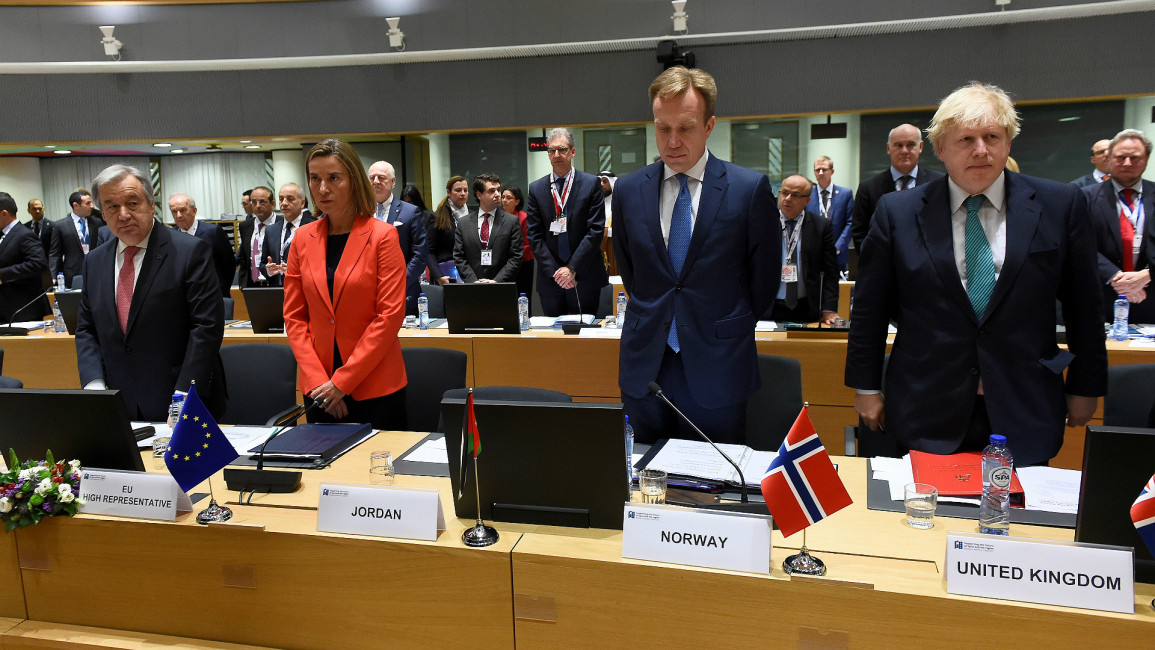All evidence points to Assad behind chemical attack: UK
All evidence points to Syrian President Bashar al-Assad being behind the chemical weapons attack which left more than 70 dead in a rebel-held town, British Foreign Secretary Boris Johnson said on Wednesday.
"All the evidence I have seen suggests this was the Assad regime... using illegal weapons on their own people," Johnson said as he arrived for a Syria aid conference in Brussels.
"What it confirms to everybody is that this is a barbaric regime which has made it impossible for us to imagine them (having) authority over Syria after this conflict," he added.
The Brussels conference, co-chaired by the EU and UN, is a follow up to last year's London meeting which raised $11 billion (10 billion euros) for humanitarian aid programmes in the devastated country.
| Read more on the attack here: Rocket hits hospital treating Syria 'gas attack' victims |
It is also meant to support UN-sponsored peace talks in Geneva where mediator Staffan de Mistura has reported some very modest progress in solving a conflict which has claimed hundreds of thousands of lives and displaced most of the Syrian population.
Assad's future role is a key sticking point – the rebels and their international backers demand that he must step down.
But Assad refuses to budge and his key ally in Moscow has backed him to the hilt against the rebels and shows no sign of changing tack.
EU foreign affairs chief Federica Mogherini urged the international community to press ahead with the peace talks, which were made even more urgent after Tuesday's suspected chemical weapons attack.
"We need to give a push, a strong push to the political talks in Geneva. We have to unite the international community behind these negotiations," Mogherini said.
The Syrian conflict began when the Baath regime, in power since 1963 and led by President Bashar al-Assad, responded with military force to peaceful protests demanding democratic reforms during the Arab Spring wave of uprisings, triggering an armed rebellion fuelled by mass defections from the Syrian army.
According to independent monitors, hundreds of thousands of civilians have been killed in the war, mostly by the regime and its powerful allies, and millions have been displaced both inside and outside of Syria.
The brutal tactics pursued mainly by the regime, which have included the use of chemical weapons, sieges, mass executions and torture against civilians have led to war crimes investigations.

![Trump's warm greeting to Netanyahu contrasted with Kamala Harris's critical reception [Getty]](/sites/default/files/styles/image_330x185/public/2024-07/GettyImages-2162908988.jpg?h=69f2b9d0&itok=OLc5dL88)
![The brutal assault on Khan Younis has killed dozens and displaced thousands more [Getty]](/sites/default/files/styles/image_330x185/public/2024-07/GettyImages-2162526709.jpg?h=d3eda8cf&itok=n5N-o8p5)
![Members of the Algerian delegation threw roses into the Seine [Getty]](/sites/default/files/styles/image_330x185/public/2024-07/GettyImages-2162980872.jpg?h=199d8c1f&itok=h_3o_TOL)